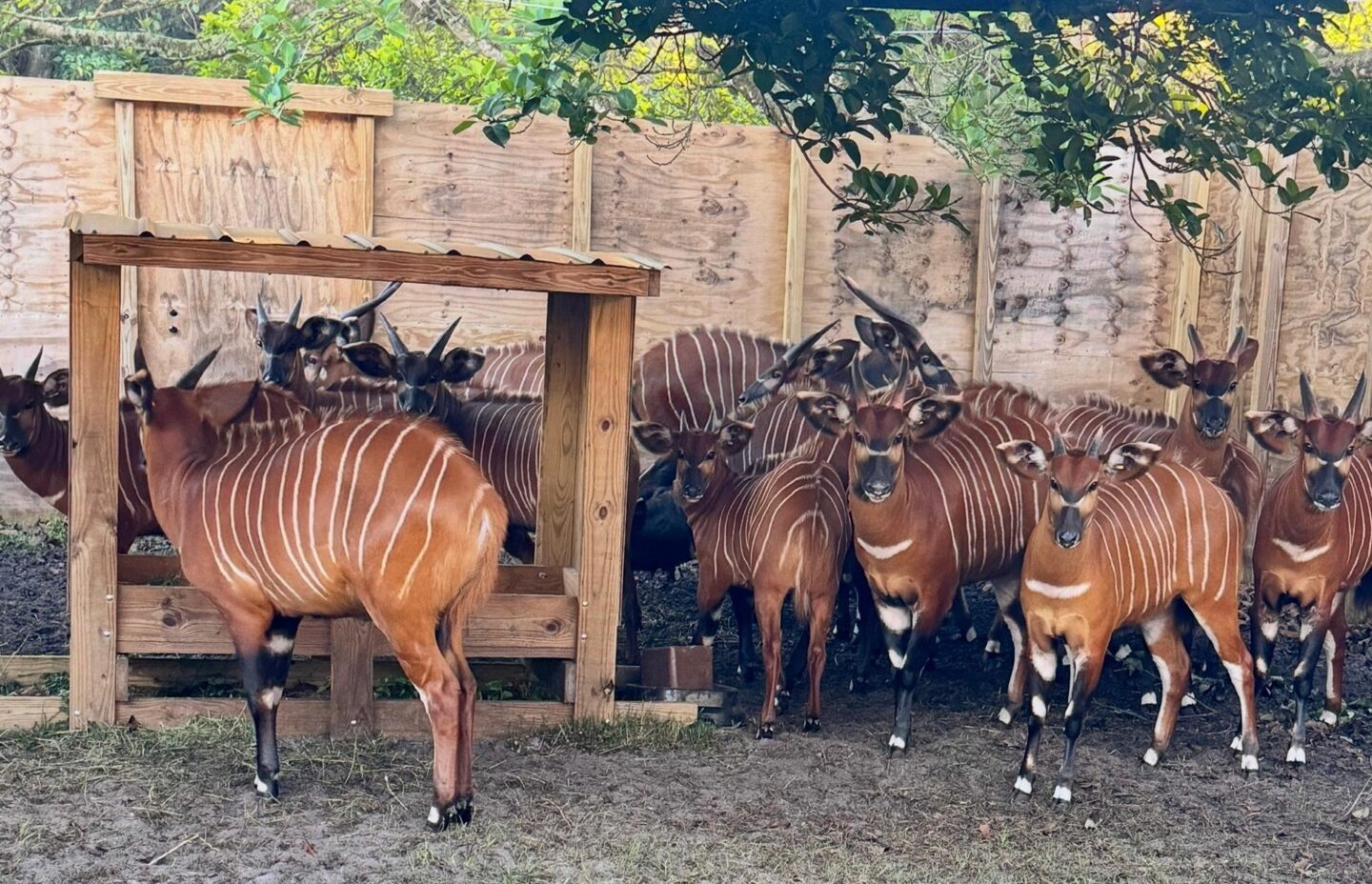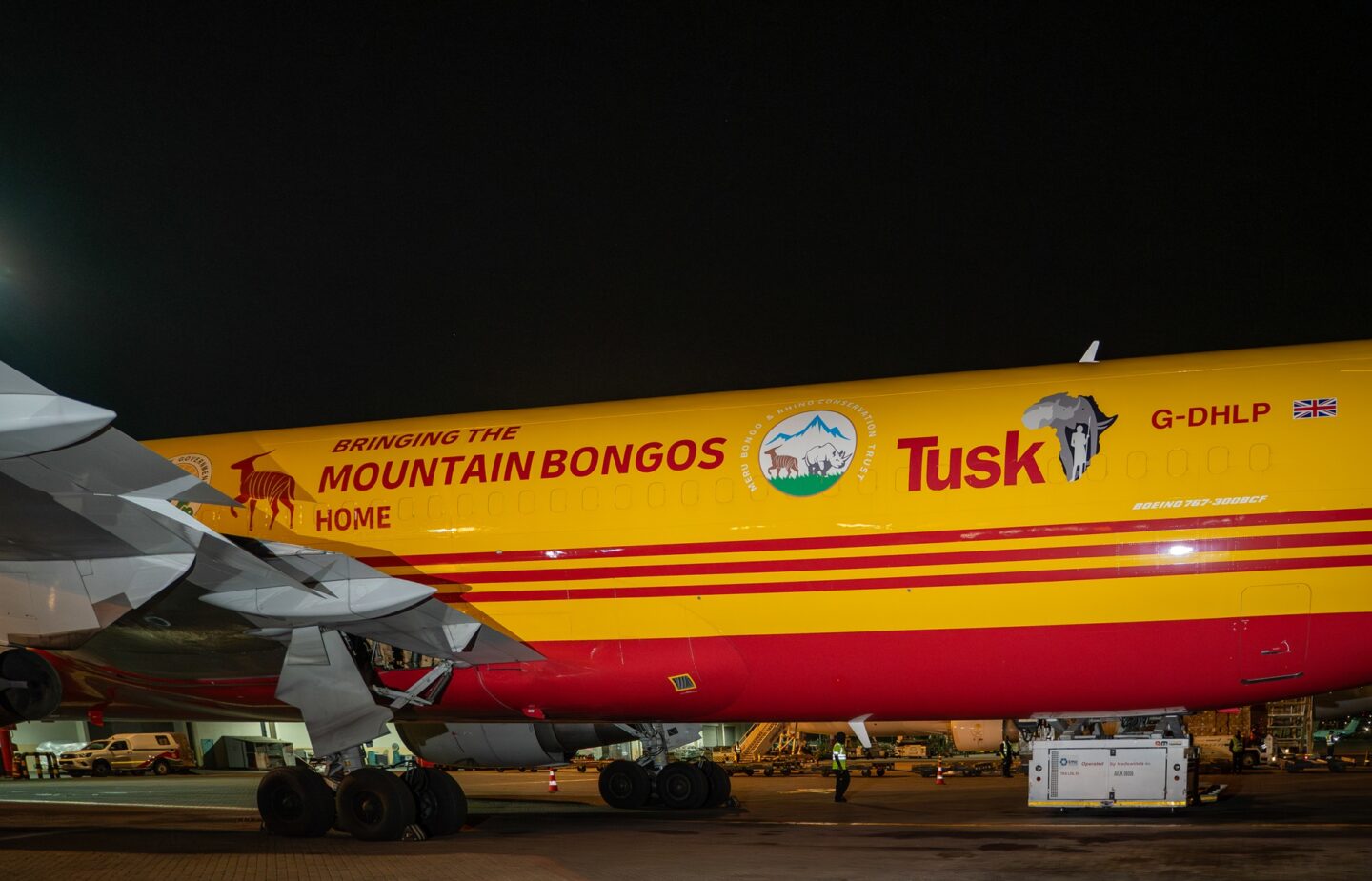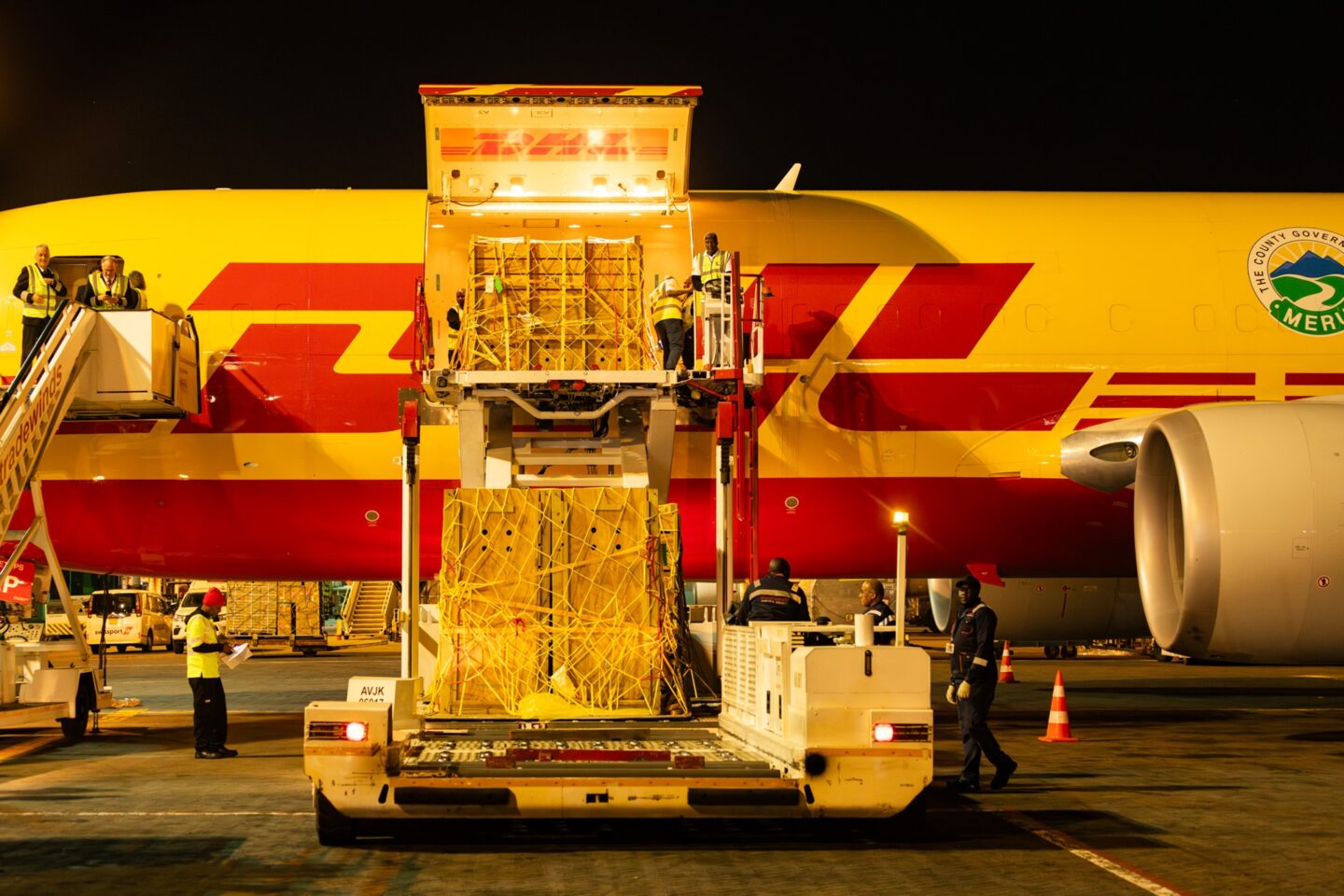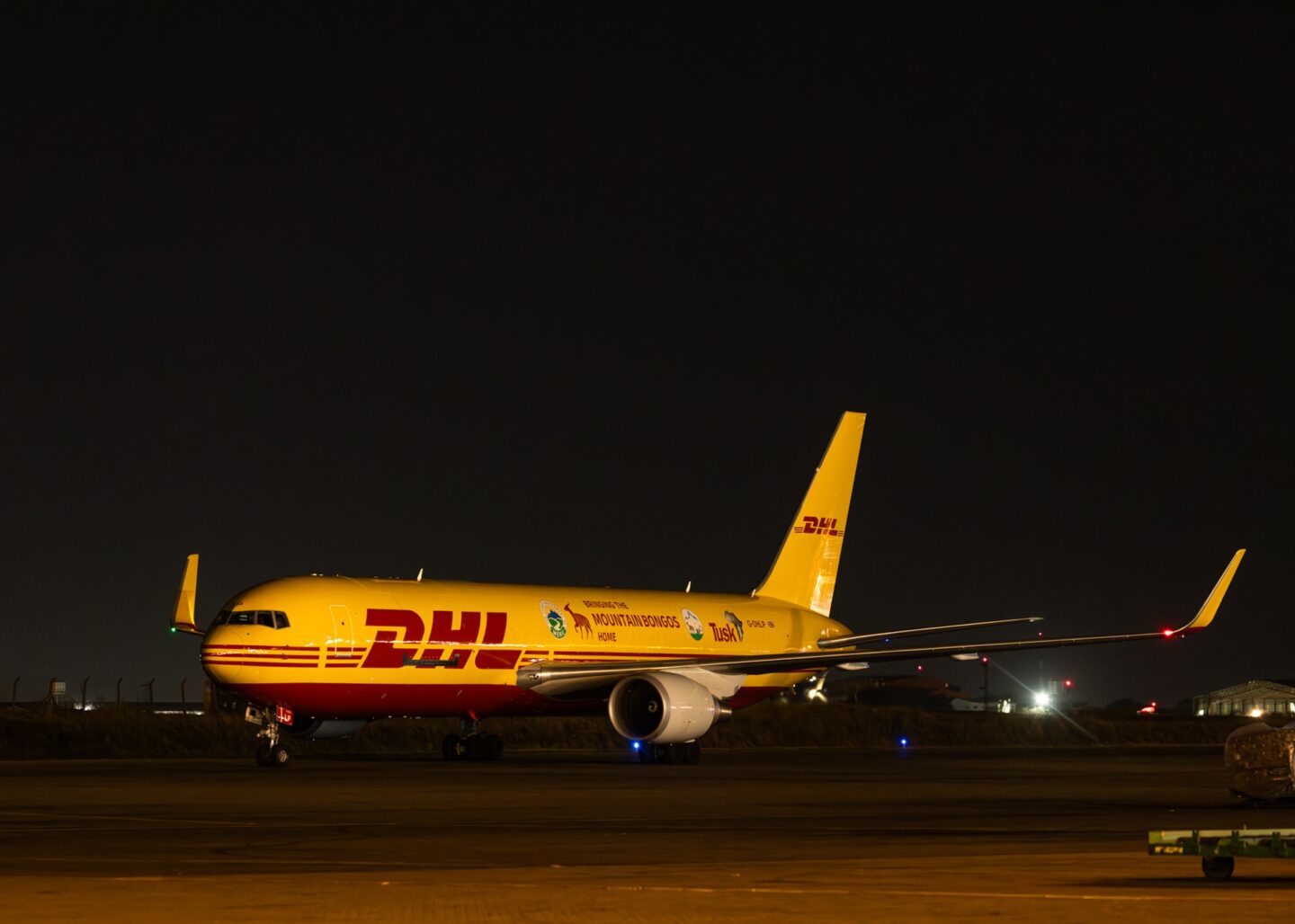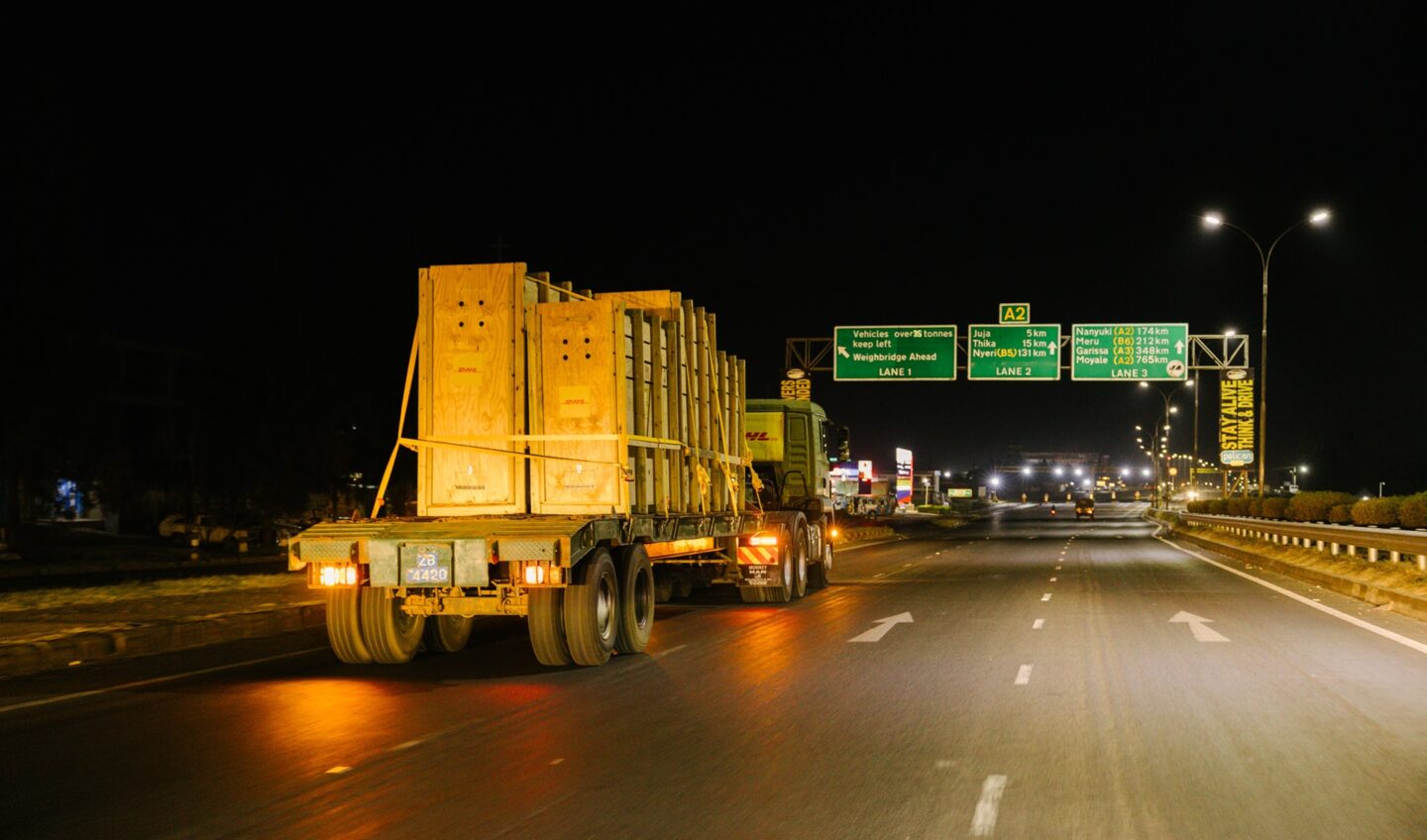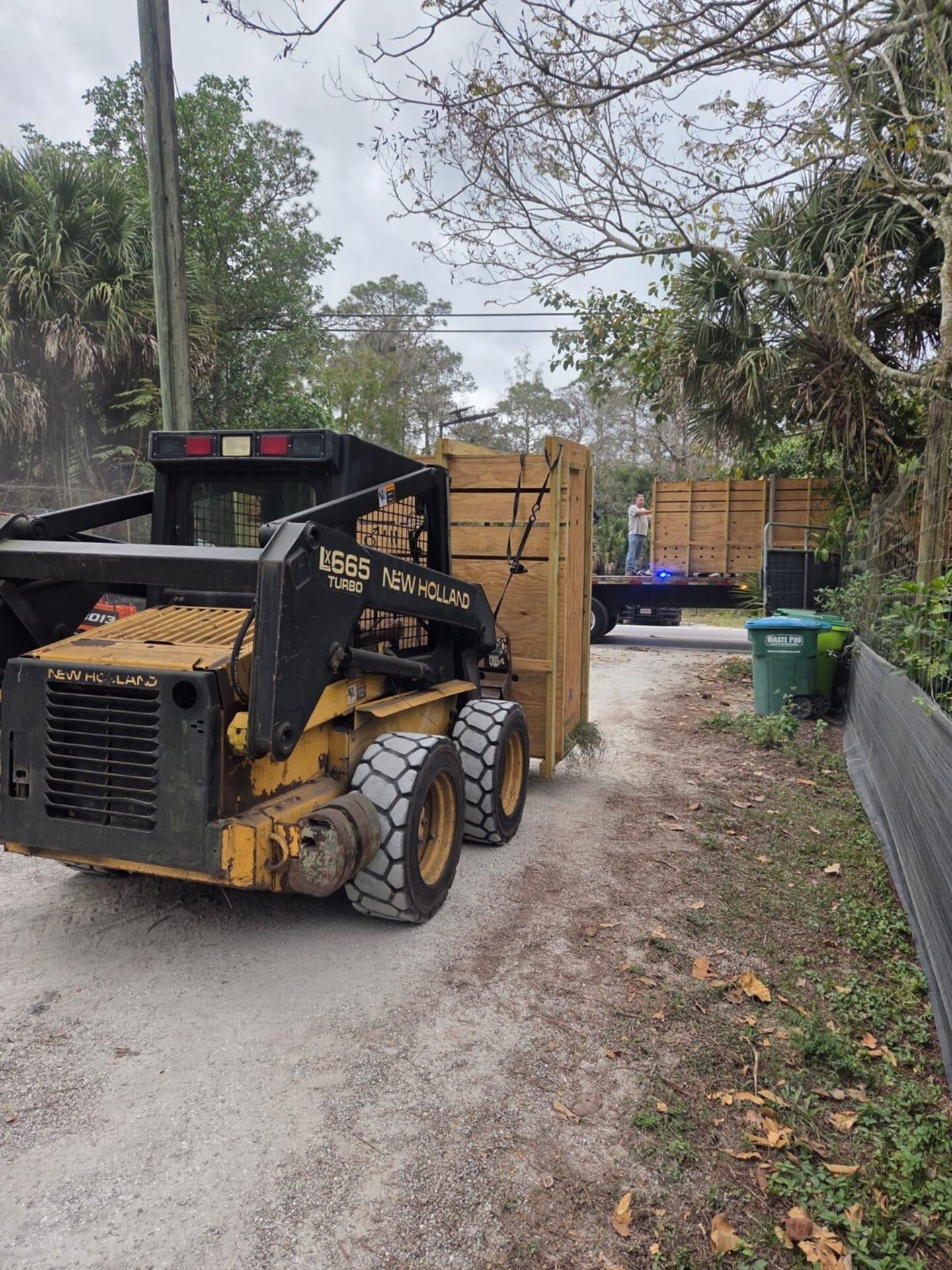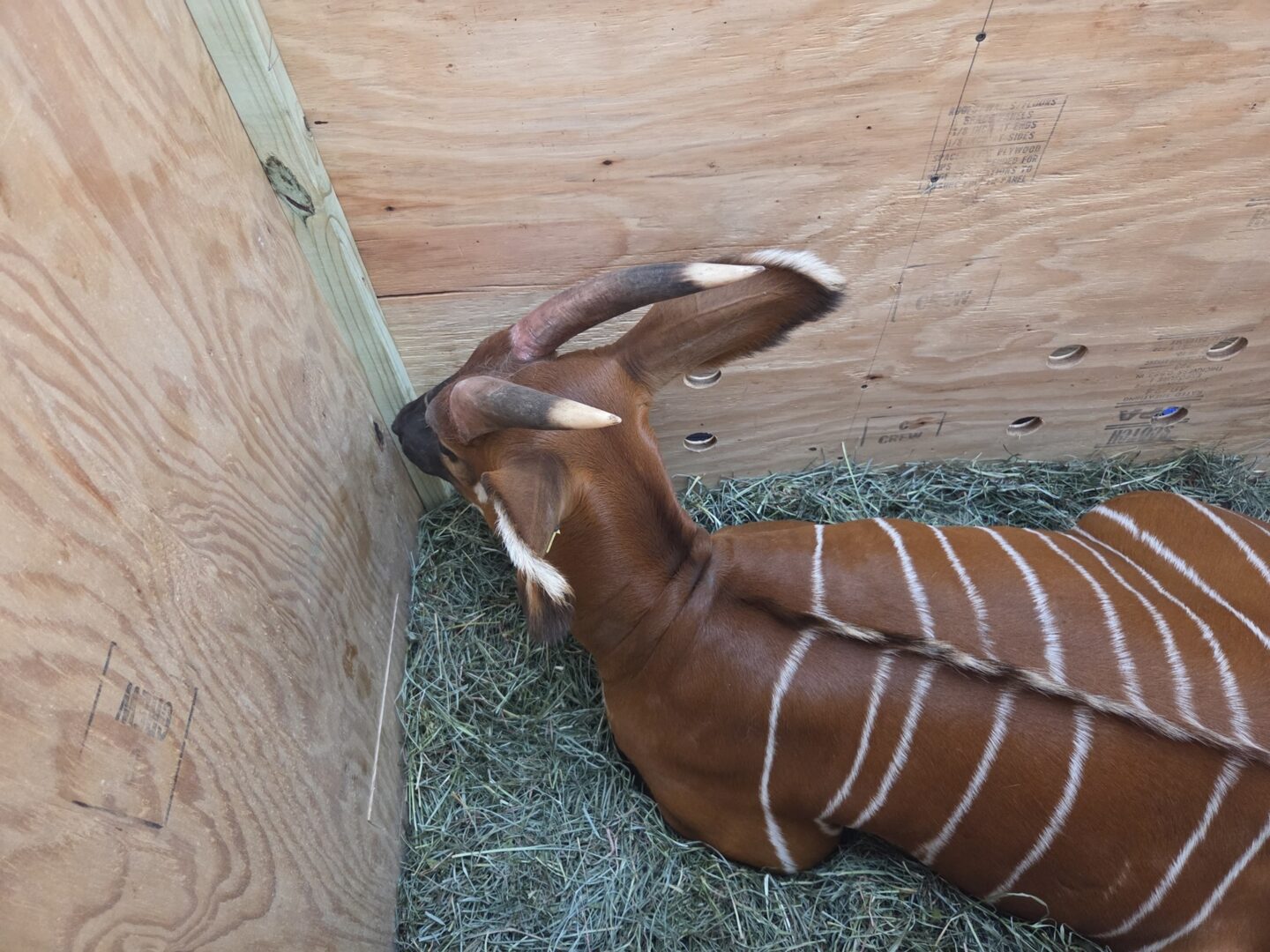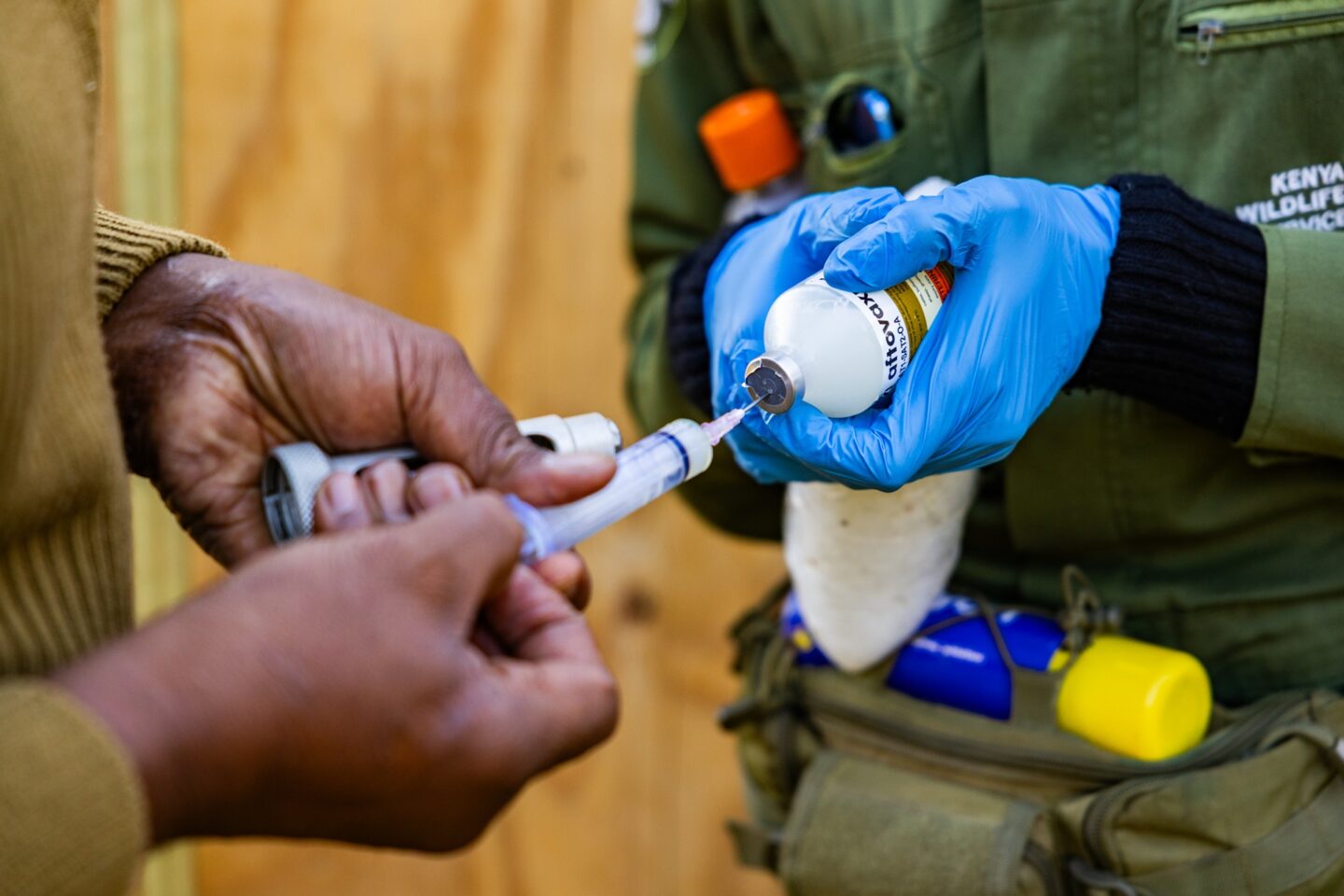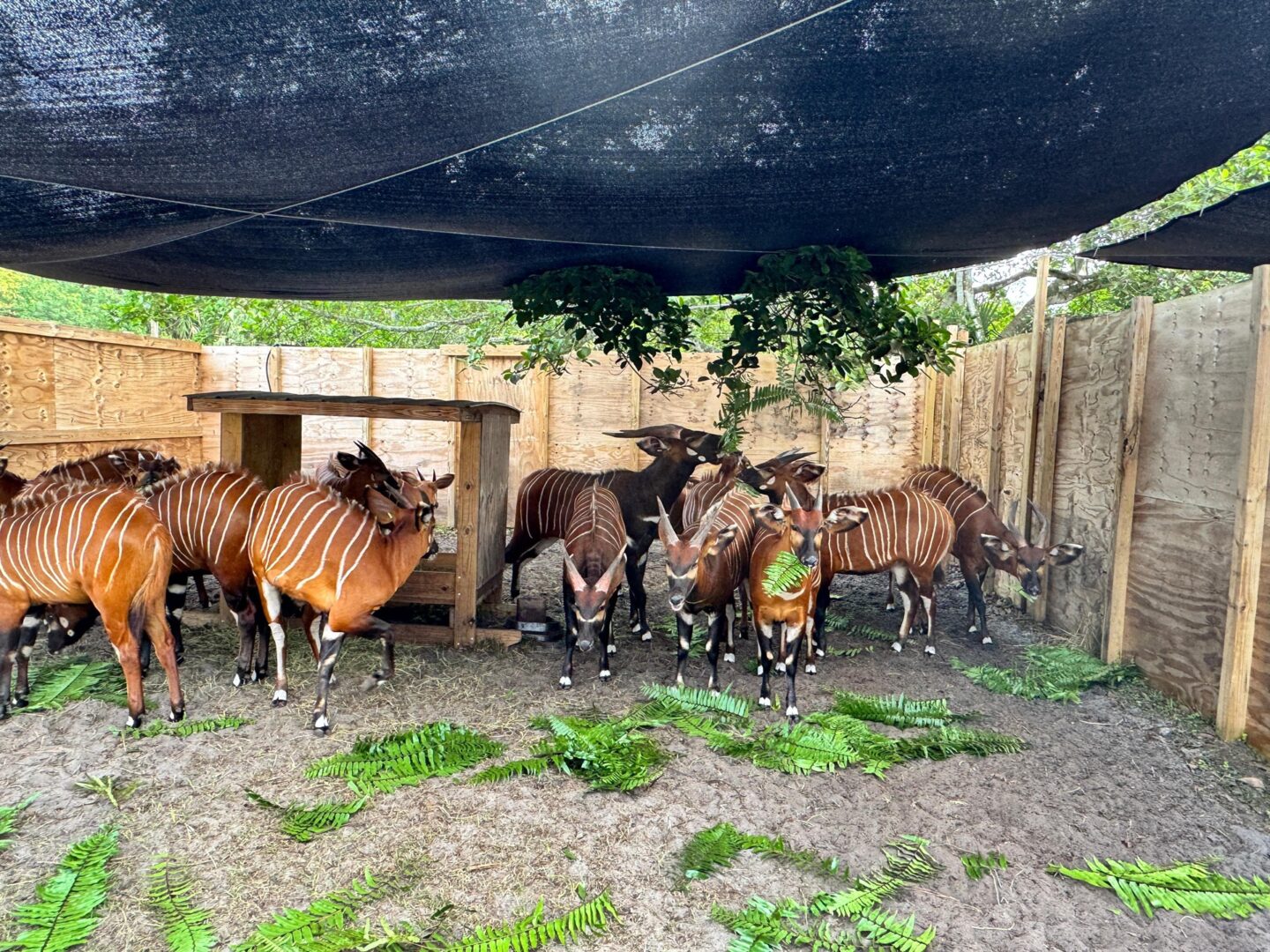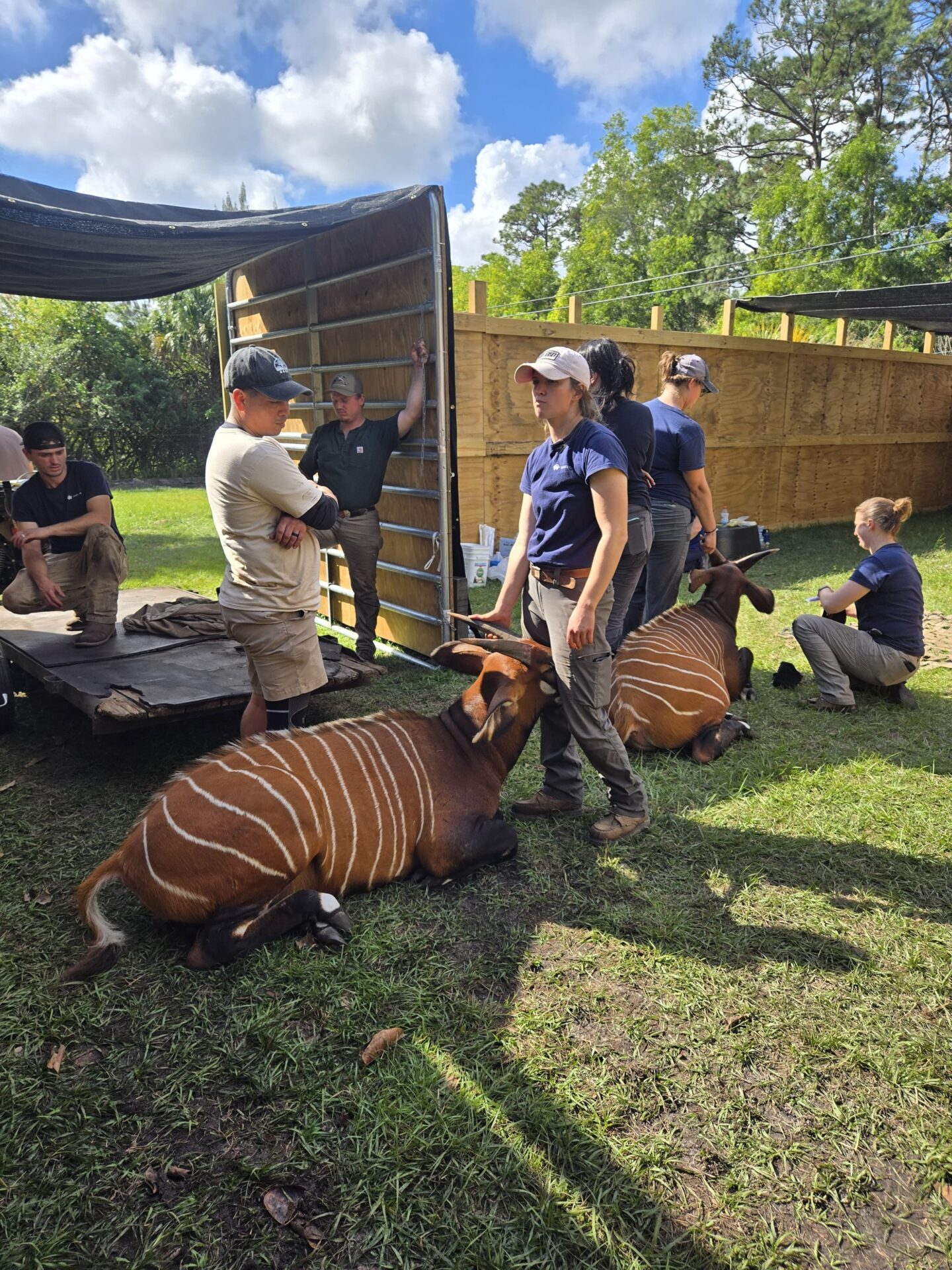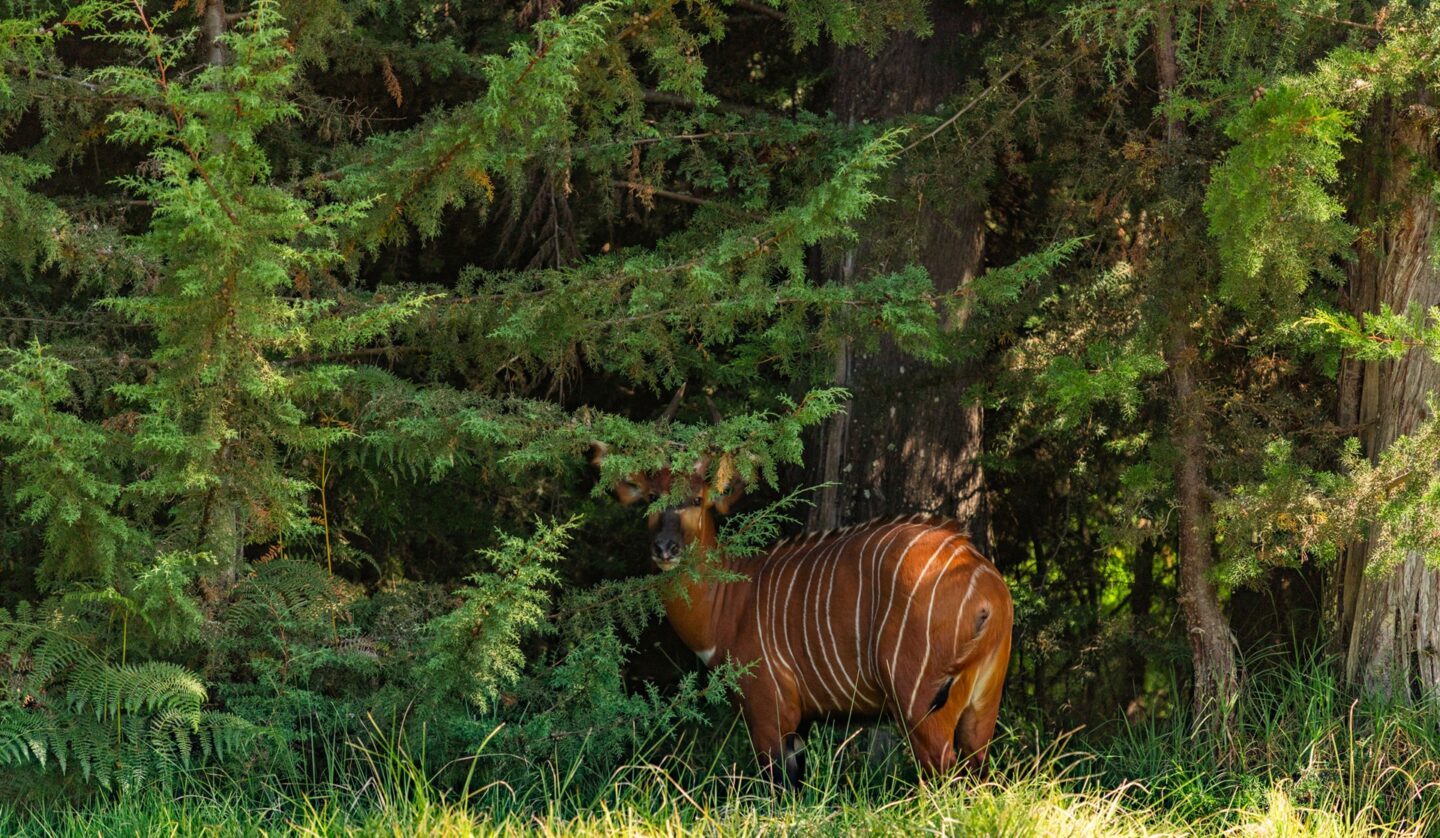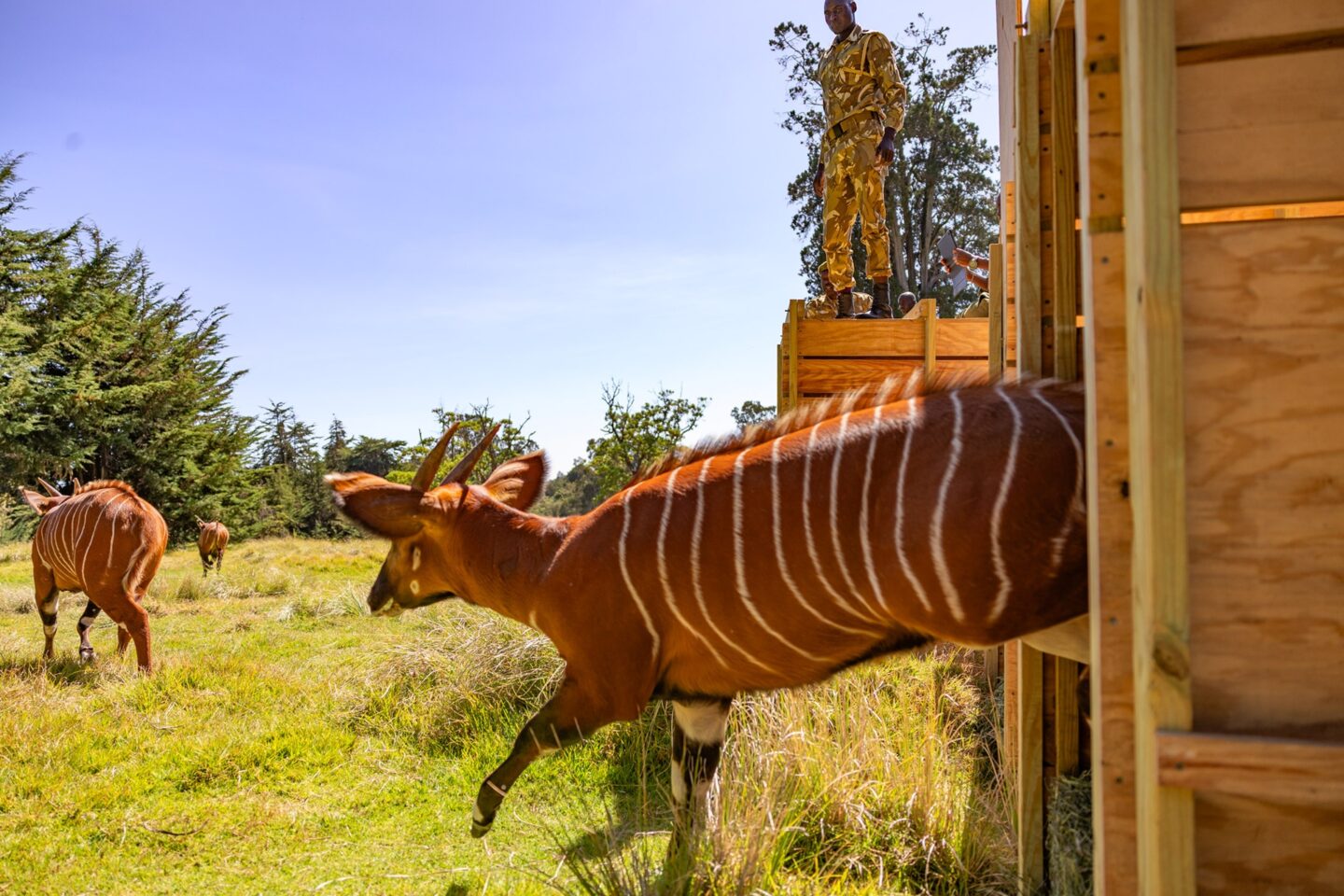
The mountain bongo antelope is the world’s largest and most endangered forest antelope, which is endemic to Kenya’s high-mountain forests. Today, less than 100 remain in the wild, however they have been bred and managed for species recovery by the Rare Species Conservatory Foundation (RSCF) in Florida, USA, since 1991, who carefully selected 17 bongos – comprising 12 females and five males from its large breeding herds – to donate to the government of Kenya.
To prepare the bongo for travel, the animals were segregated for pre-shipment testing and preparation in a specially designed corral-chute system. They were then vaccinated for pathogens and given a pioneering, recombinant-DNA vaccine to help protect against tick-borne disease.
On 22 February, all 17 animals were successfully crated and given a long-acting sedative to ease their 30-hour journey before they flew 7146 nautical miles in a Bongo-branded DHL Boeing 767 to Kenya. The bongos were transported in custom-built crates, alongside six tons of pelleted feed. Three US animal-care experts, including a wildlife veterinarian, accompanied the animals during their journey.
Upon their arrival, the Kenya Wildlife Service transported the animals 250 kms by road to the slopes of Mt. Kenya, where they were released into a 20-acre sanctuary, which has been set aside for the bongos by the Kenya Forest Service and built by Lewa Wildlife Conservancy and MBRCT. As one of Kenya’s flagship species, the mountain bongo personifies Kenya’s high-mountain forest ecosystems. Bongo conservation offers far-reaching benefits to the landscape, contributing to the conservation of many other species of fauna and flora that share its habitat. The sanctuary serves as a secure home and breeding ground for the animals, to support re-establishing a sustainable bongo population across the Mount Kenya ecosystem and beyond.
Tusk Founder and Chairman, Charlie Mayhew, said, “The return of 17 critically endangered mountain bongos from Florida to Kenya is a significant step in restoring this critically endangered species to its native habitat. As a public-private partnership between mountain communities, local council, government departments, conservation agencies and international organisations, it also demonstrates the power in working collectively towards a common goal, and the conservation progress that can be made through collaboration – a core Tusk value.”
Dr. Paul Reillo, RSCF Founder and President, said, “There is simply no higher calling for humanity than to protect what remains of nature. The mountain bongo’s story of decline and recovery has been entirely on our watch, and the species’ future lies with all of us. The bongo’s resilience is a story of hope for wildlife and people alike, merging elevated partnerships, proven expertise, vital resources and amazing courage. This humbling, profound project exemplifies true wildlife conservation in real time.”
Mike Parra, CEO DHL Express Europe, said: “We are so proud to be able to leverage the power and expertise of our global network to assist in transporting these critically endangered Mountain Bongo to their new sanctuary in Kenya. The logistics of moves such as this are incredibly complex, with the welfare of the animals being everyone’s top priority. A huge thank you to our partners at Tusk, Rare Species Conservatory Foundation and Lewa Wildlife Conservancy, and everyone involved in making this important conservation mission a success”.

